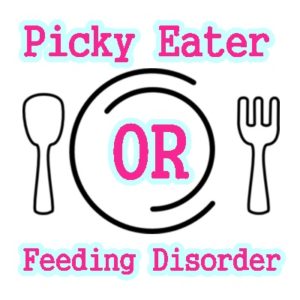 Picky eater have been associated with autism. Most autistic kid are picky eater at sometimes because they have sensory issues regarding foods they ate. Some may have restrictive and ritualistic behaviors that affect eating habits that may result in nutritional deficiencies that lead to weight loss, malnutrition and inadequate growth. Children that so selective with their food can be associated with feeding disorder instead of picky eater. A child with feeding disorder may need to evaluate and seek professional help.
Picky eater have been associated with autism. Most autistic kid are picky eater at sometimes because they have sensory issues regarding foods they ate. Some may have restrictive and ritualistic behaviors that affect eating habits that may result in nutritional deficiencies that lead to weight loss, malnutrition and inadequate growth. Children that so selective with their food can be associated with feeding disorder instead of picky eater. A child with feeding disorder may need to evaluate and seek professional help.
According to Pediatric Psychologist Kimberly Brown, director of the Pediatric Feeding Disorder Program at the Kirch Developmental Services Center of the University of Rochester, New York, there are great difference between picky eater and feeding disorder. Here are some guidelines to identify if your child is picky eater or with feeding disorder.
Picky Eaters
- A child is willing to eat at least 1 or 2 foods from each food group like for example fruits, vegetables, grains and protein.
- A picky eater child has favorite foods but will tolerate some difference in these favorites such will eat few different types of hotdogs or sandwich.
- A child can find something to eat outside the house such as in restaurant, parties, picnics, etc.
- A child may encourage to eat food by seeing someone eat it and by giving rewards.
- No significant problem with shallowing and chewing
- A child can resist foods with mild behaviors
Feeding Disorder
- A child avoids entire food group including fruits and vegetables.
- A child with feeding disorder will eat only a specific brand of a favorite food or a food with particular color or shape.
- A child may displays extremely anxiety when forced to eat certain foods.
- A child may need to bring his own or desired foods when going out or has to eat at home before leaving.
- No showing interest in other foods and does not respond to rewards.
- There is a problem with feeding skills such as shallowing or chewing foods.
